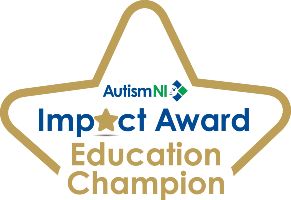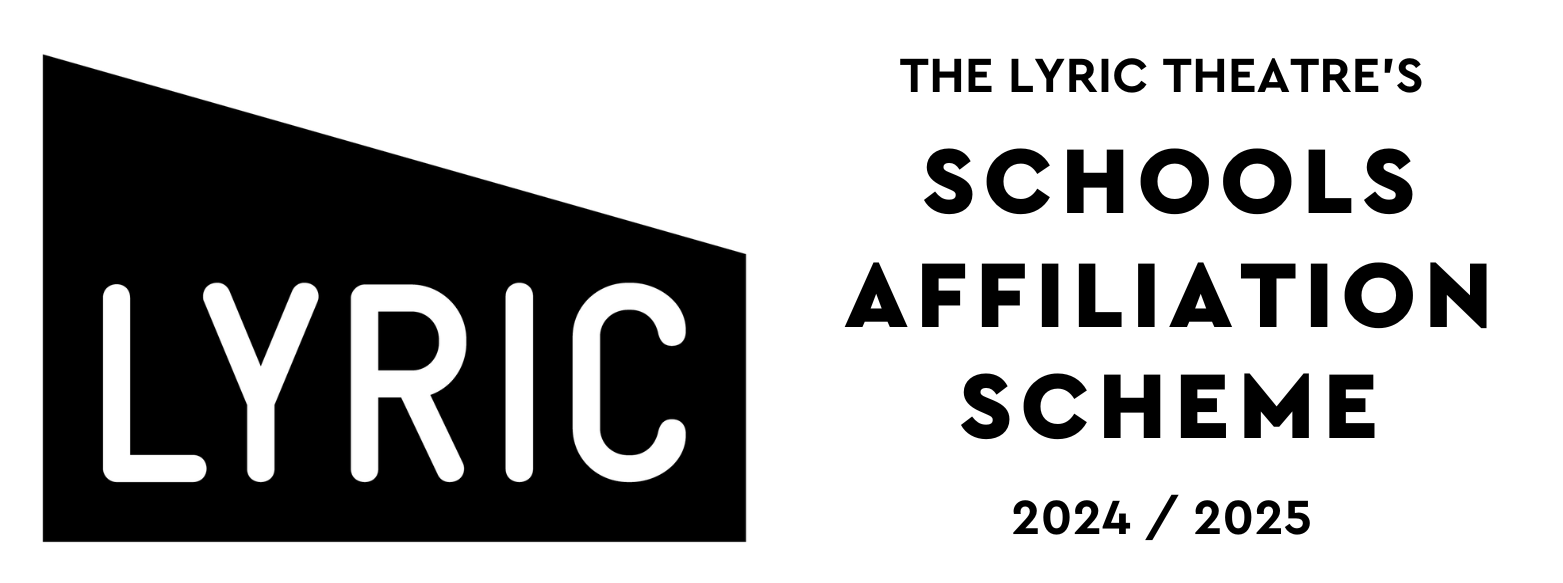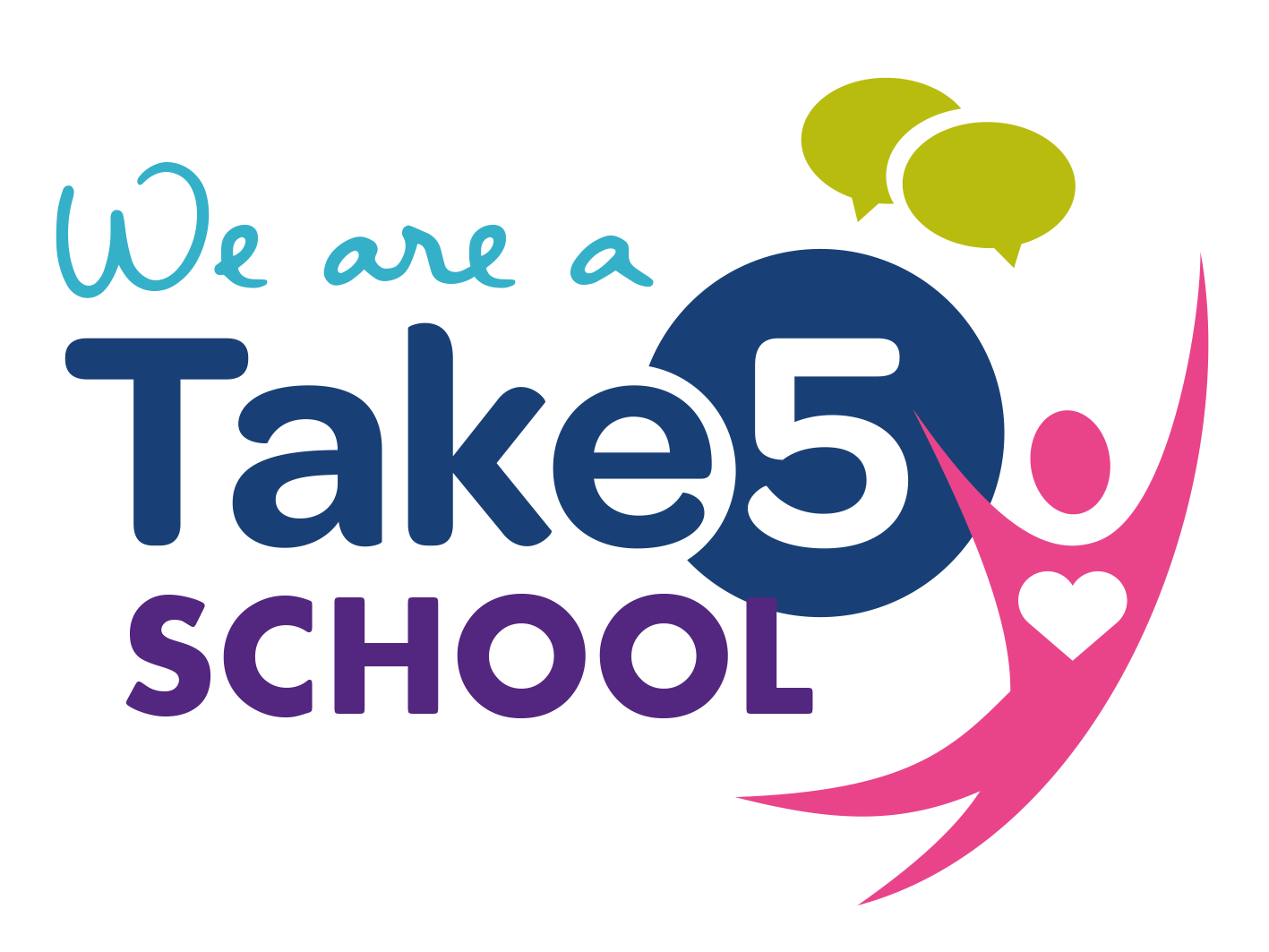Drama and Theatre Studies
SPECIFIC AIMS OF THE DEPARTMENT
The Drama Department aims to:
- promote the personal and social development of pupils;
- develop pupils’ communicative and expressive abilities, both verbally and non-verbally;
- stimulate pupils’ creative and emotional intelligences;
- provide opportunities for pupils to engage with and respond to a range of dramatic literature and stimuli;
- enable pupils to work imaginatively and creatively in collaborative contexts, generating, developing and communicating ideas;
- provide opportunities for pupils to explore relevant issues from various perspectives;
- develop pupils’ knowledge, skills and understanding specific to the subject area;
- develop pupils’ appreciation of live theatre and promote their critical thinking; and
- develop pupils as independent and reflective learners.
OVERVIEW OF KEY STAGE 3 CURRICULUM
At Key Stage 3, Drama is delivered over two lessons per fortnight. In line with the requirements of the Northern Ireland Curriculum, Drama is studied as a discrete subject by all pupils at Key Stage 3. Drama at Key Stage 3 places particular emphasis on active learning and group work. Through practical activities, pupils acquire subject-specific knowledge and understanding and develop a range of transferable skills and capabilities. Drama contributes significantly to the personal and social growth of pupils. The building of confidence, the promotion of self-awareness and the development of an ability to work effectively with others are key targets for each pupil in Drama at Key Stage 3.
Additionally, vocal and physical communication skills are addressed so that pupils may be able to purposefully present themselves in imagined and real-life situations. Pupils’ participation in a range of reading, writing, and talking and listening activities throughout Key Stage 3 ensures that the study of Drama also supports literacy development.
Units of Work at Key Stage 3 are based on the following structure:
- Stage 1: Development of Pupils’ Knowledge and Understanding of Drama
- Stage 2: Development of Pupils’ Skills through Practical Exploration
- Stage 3: Assessment of Pupils’ Skills through Practical Application
- Stage 4: Assessment of Pupils’ Knowledge and Understanding through Reflection and Evaluation.
Assessment throughout Year 8, Year 9 and Year 10 is based on Continuous Monitoring tasks. These tasks are practical in nature, although some tasks also include a written element. To ensure standardisation of assessment at Key Stage 3, teachers use common mark schemes to assess pupils’ work against specific criteria. A final assessment at the end of Year 8, Year 9 and Year 10 may take the form of a written exam or portfolio-based work. Having experienced Drama at Key Stage 3, pupils will be equipped with a strong knowledge and skills base for progression to GCSE study.
YEAR 8 CURRICULUM
In Year 8, pupils study the following topics:
- Introduction to Drama
- Basic Drama Skills
- Performance Skills in Drama
- Vocal and Physical Warm Ups
- Using Images in Drama
- Understanding Non-Verbal Communication
- Improvisation
- Drama Strategies
- Monologues and Duologues
- Script Writing
- Scripted Performance
YEAR 9 CURRICULUM
In Year 9, pupils study the following topics:
- Issue-Based Drama (Friendship, Peer Pressure and Bullying)
- Scripted Performance
- Stage Positions and Types of Stage
- Physical Theatre
- Soundscaping
- Shakespeare’s Theatre
- Performing Shakespeare
YEAR 10 CURRICULUM
In St. Mary’s, the Year 10 curriculum is based on the structure of the GCSE curriculum where pupils study one text in depth: Blood Brothers. Students study aspects of acting, direction and design. Year 10 also research Careers in the Arts.
THINKING SKILLS AND PERSONAL CAPABILITIES
Although the assessment of Thinking Skills and Personal Capabilities is incorporated in all Drama Continuous Monitoring tasks throughout Key Stage 3, the Drama Department will report on pupils’ Thinking Skills and Personal Capabilities at the end of Year 10.
OVERVIEW OF KEY STAGE 4 CURRICULUM
Pupils follow the CCEA specification for Drama. Drama is delivered over six lessons per fortnight.
GCSE DRAMA (CCEA)
Unit 1: Understanding Drama (40%)
This unit aims to develop pupils’ knowledge and understanding of drama in terms of design, rehearsal and performance.
In this unit, pupils are required to study a set text. The set text studied by pupils is Juno and the Paycock by Seán O'Casey. Through practical exploration and research, pupils must develop approaches to the costume design of the play and to the rehearsal of roles in preparation for performance.
This unit is assessed in the form of a written examination. Pupils will have 1 hour and 30 minutes to complete the assessment for this unit. Assessment of this unit will take place at the end of Year 12. Pupils’ work in this unit will be externally assessed.
Unit 2: Drama Performance (60%)
This unit aims to develop pupils’ practical drama skills in either a performance or theatre design role.
In this unit, pupils are required to complete two Controlled Assessment tasks which are practical in nature and constitute 60% of the final GCSE Drama grade. Scripted Performance is worth 35% and Devised Drama is worth 25%. Pupils may also choose a design pathway if they wish.
This unit is assessed in the form of a practical examination with supporting written evidence. Pupils will have a minimum of 15 hours to complete the exploration, performance and evaluation of each task. Assessment of this unit will take place during Year 12. Pupils’ work in this unit be internally assessed and externally moderated.
OVERVIEW OF KEY STAGE 5 CURRICULUM
At Key Stage 5, the Drama Department offers Theatre Studies at AS and A2 Level. Students follow the WJEC specification. At AS Level, Drama and Theatre Studies is delivered over eleven lessons per fortnight. At A2 Level, Drama and Theatre Studies is delivered over ten lessons per fortnight. At AS Level, students must successfully complete two units. A further two units must be successfully completed at A2 Level
AS THEATRE STUDIES
Pupils study two units at AS Level. Unit 1 is a practical reinterpretation of a set text in a different style to the original production. Pupils must also produce a creative log and evaluation. This unit is internally assessed and externally moderated. Unit 2 is based on the Greek Tragedy Medea; pupils study the play from the perspective of acting, direction and design. This unit is assessed externally by written examination at the end of Year 13.
A2 THEATRE STUDIES
Pupils study two units at A Level. Unit 3 involves two practical performances based on stimuli set by the exam board. Pupils must also produce a Process Log and Evaluation. This unit is assessed by a visiting examiner. Unit 4 involves the in-depth study of two plays; The Radicalisation of Bradley Manning and A Day in the Death of Joe Egg. This unit is externally assessed by written examination.
ADDITIONAL SUBJECT INFORMATION
EXTRA-CURRICULAR PROVISION
The Drama Department contributes extensively to the school’s extra-curricular provision. Extra-curricular activities include:
- regular theatre visits;
- theatre trips to London and New York;
- a range of theatre workshops;
- school productions including plays and musicals;
- drama festivals such as the Shakespeare Schools Festival;
- lunchtime activities such as Lunchtime Theatre; and
- clubs such as the Drama Club.
The Drama Department offers a wide range of extra-curricular opportunities and experiences for pupils. Residential and non-residential theatre trips are regular features of the Drama Department. Students travel to various theatres around Ireland to view performances that are of particular interest.
Beyond Ireland, the Drama Department provides pupils with opportunities to engage with theatre in locations such as London and New York. The Drama Department enjoys links with many professional theatre practitioners, companies and organisations who often visit the school to deliver a broad range of workshops in areas such as dance, improvisation, acting and theatre design. Pupils have the opportunity to be part of school productions, including musicals and plays, in either a performance or backstage role. Lunchtime Theatre performances are well attended, enabling pupils to present their work to peer-group audiences. Showcase Performance evenings offer parents the chance to view pupils’ drama work.
FACILITIES AND RESOURCES
The Drama Department has two specially tailored teaching spaces for the delivery of Drama. All Drama classes, as far as possible, are timetabled in one of these spaces. Each space is equipped with staging, lighting and sound resources and may be used for teaching, rehearsal or performance work. ICT facilities include PCs, an Apple Macintosh computer, an interactive whiteboard and internet access. Additionally, each teacher in the Drama Department has an iPad. The Drama Department also has access to the recently upgraded stage space in the Assembly Hall which is fully equipped with sound and lighting technology.
CAREERS INFORMATION
The study of Drama does not limit pupils to a career in an arts-related industry. Some pupils may choose to study Drama because they are interested in a career in a related field. Others will choose to study Drama because they want to focus on skills that Drama can help them to develop. Others will choose to study Drama simply because they enjoy the subject.
The study of Drama will be useful for related careers such as:
- Actor
- Director
- Script Writer
- Stage Manager
- Set Designer
- Lighting Designer
- Costume Designer
- Theatre Technician (sound and lighting)
- Theatre Manager
- Marketing Officer
However, the study of Drama is also particularly useful for developing skills which are becoming increasingly important in university and employment selection processes.
For example, as part of the selection process, students who apply to study Medicine at Queen’s University, Belfast now have to complete Multiple Mini Interviews which involve role-playing activities. Many employers now run Skills Development and Assessment events before appointing applicants to positions. Such events place applicants in a range of situations and scenarios and assess their responses and ability to deal with a range of issues. Increasingly, businesses and organisations are using drama and role play within staff development and training programmes.
Throughout the study of Drama, pupils are provided with a range of role-playing opportunities and gain experience in a range of imaginative contexts. This background may be useful preparation for recruitment and selection processes in the future and for other real life situations that pupils may encounter.
Amidst increasing competition for university places and employment, the development of skills is as important as the acquisition of knowledge and qualifications. Drama is a useful subject for developing employability skills. The study of Drama enables students to develop a wide range of transferable skills which are highly sought by universities and employers.
Always remain mindful of the advice from the Careers Department: “Qualifications will get you an interview. Skills will get you a job.”
Universities and employers seek individuals who are confident and effective communicators. The study of Drama helps pupils to develop:
- self-esteem and confidence;
- communication skills;
- presentation skills;
- social skills;
- creativity and imagination;
- ability to work independently and collaboratively; and
- ability to identify problems and find practical solutions.
DRAMA FOR CAREERS IN THE CREATIVE, EXPRESSIVE AND CULTURAL INDUSTRIES
Students opting to study Drama and Performing Arts may have an interest in pursuing a career in the Creative, Expressive and Cultural Industries.
WHAT ARE THE CREATIVE, EXPRESSIVE AND CULTURAL INDUSTRIES?
The Creative Industries are those which have their origin in individual creativity, skill and talent. The sector is a disparate one, including areas such as film, television, advertising, performing arts, music and fashion design.
WHAT TRAINING AND CAREER PATHWAYS HAVE FORMER DRAMA STUDENTS PURSUED?
Some past Drama students of St. Mary’s have trained and currently work within the creative, expressive and cultural industries. For example, former students interested in performance careers have trained at places such as Bristol Old Vic, Italia Conti, LAMDA, Queen’s University, Belfast and Trinity College, Dublin. Such students have appeared on stage and screen, taking on roles in:
- plays such as Hamlet;
- musicals such as Buddy – The Musical;
- films such as Omagh;
- soaps such as Emmerdale and Hollyoaks;
- television dramas such as Shameless;
- sitcoms such as The Gemma Factor; and
- local professional theatre productions e.g. Hansel and Gretel in the Lyric Theatre, Belfast.
Some students have gained various types of employment with organisations within the creative, expressive and cultural industries, including Cinemagic and MT4UTH, while others have established their own businesses within these industries.
ARE THERE TRAINING AND EMPLOYMENT OPPORTUNITIES WITHIN THE CREATIVE, EXPRESSIVE AND CULTURAL INDUSTRIES?
The Creative Industries are emerging as one of the fastest growing and increasingly important sectors of the economy. The most recent estimates indicate that there are over 2,500 creative enterprises in Northern Ireland, employing some 34,600 people. Recent developments reflect the increasing opportunities for training and careers in the creative arts in Ireland and the UK.
Such developments include:
- the opening of the new Lyric Theatre in Belfast;
- the opening of the Painthall Film Studio in Belfast;
- the opening of the Lir National Academy of Dramatic Art in Dublin, an official associate of the Royal Academy of Dramatic Art in London; and
- Northern Ireland becoming a favoured location for film shooting e.g. Game of Thrones, Your Highness, Mo, Hunger, Killing Bono, Keith Lemon – The Film, The Fall and Rihanna’s music video.
To find out more about careers and career opportunities in the Creative, Expressive and Cultural Arts, visit the following websites:
- Drama Career Prospects
- Creative Skillset
- Creative and Cultural Skills
- Creative Boom
WHAT OTHER CAREER PATHWAYS HAVE FORMER DRAMA STUDENTS TAKEN?
As mentioned before, the study of Drama does not limit students to a career in the arts or related industries. In fact, many students who opt to study Drama do not follow a career in a related area. However, the skills, abilities and experiences they gain in the subject stand them in good stead to move into any career area.
The skills developed within the subject area have enabled past students to pursue careers in a broad range of fields including:
- Law
- Psychology
- Medicine
- Education
- Business
- Communication, Advertising and Marketing
- Pharmacy
- Radiotherapy
- Nursing
- Drama and English
- Music
- Speech and Language Therapy
- Veterinary Medicine
- Finance and Investment Analysis
- Film Studies
- Accountancy
- Costume Design
SKILLS DEVELOPMENT
Whether students choose to pursue a career in the arts, the media, education, the world of business or law, the public or voluntary sectors, or to undertake further academic study or professional training, the study of Drama enables them to develop the following sets of skills and attributes:
- independent attitudes: drive, energy, (self) motivation, initiative;
- collaborative skills: teamwork, cooperation;
- collaborative attitudes: commitment, dependability, (self) management, organisation, time-management;
- communication skills: oral communication, written communication, presentation (to diverse audiences);
- intellectual skills: analysis, interpretation, ability to summarise, logical argument, ability to see all sides of an argument;
- adaptable attitudes: willingness to learn, flexibility, ability to cope with pressure and change;
- strategic skills: leadership, ability to initiate new developments, ability to set agendas, self-confidence; and
- research/core academic skills: locating and sorting a range of source materials, reading and interpreting sources, oral and written communication, presentation, numerical proficiency.









